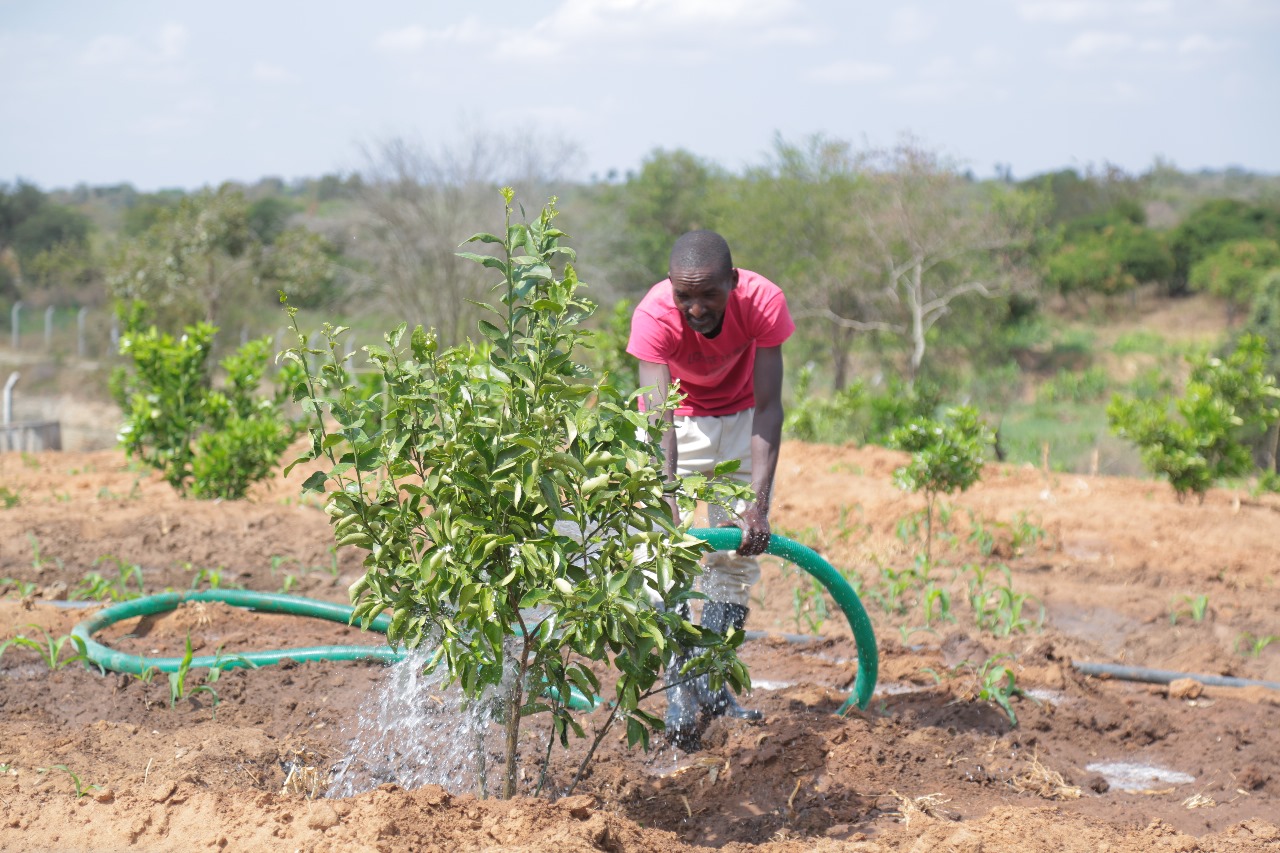 Patrick Muinda irrigates his orchard using water pumped from Kiumanya water pan established by the National Irrigation Authority in Makueni county.
Patrick Muinda irrigates his orchard using water pumped from Kiumanya water pan established by the National Irrigation Authority in Makueni county.Experts in agriculture and technology have called for greater involvement of farmers in the design of agricultural technologies to ensure traditional farming practices are preserved.
Speaking at a participatory technology assessment forum in Murang’a town on Friday, the experts noted that most technologies deployed to smallholder farms originate from developed countries and are not always tailored to local needs.
While acknowledging the transformative potential of technology in agriculture, the experts stressed that it must safeguard agroecology and biodiversity, and respect farmers’ autonomy, or risk undermining efforts to build sustainable food systems.
Barbara Ntambirweta, a lawyer and researcher with the ETC Group, which advocates for biodiversity and agroecological food systems, said many technologies are being promoted to support climate-smart agriculture.
Ntambirweta emphasized the importance of consulting smallholder farmers during the development of agricultural technologies so that they meet local needs.
“Most of the technologies being used in the agriculture sector are brought in from outside Africa. We want farmers to be at the heart of the technologies they use,” she said.
“They should be consulted during the design process. Farmers must be included in developing agroecological tools that are appropriate for their context,” she added.
She called on the government to enact laws guiding the deployment of agri-tech tools and to strengthen measures protecting traditional farming practices.
Ntambirweta also highlighted the need for urgent discussions on the digitization of agriculture to ensure it aligns with national goals while serving farmers’ interests.
“We need to discuss how digitization should be structured, including guiding principles and frameworks. Counties should ensure it does not disempower farmers and that it promotes a farmer-centered, agroecological approach,” she said.
She further raised concerns about the collection of farmers’ data by private companies and organizations, many of which lack the mandate to gather such information. Ntambirweta urged county governments to develop policies that protect farmers from exploitation and to establish legal frameworks regulating data use and safeguarding its integrity.
The forum was organised by the Africa Technology Assessment Platform, which works to ensure Africans assess and determine the impact of emerging technologies, including artificial intelligence, biotechnology, and geoengineering, on food systems and ecosystems.
Gideon Muya, Programme Assistant for the Biodiversity and Biosafety Association of Kenya (BIBA-Kenya), stressed the importance of evaluating how digital tools affect small-scale farmers, who contribute over 75 per cent of Kenya’s agricultural output.
He said BIBA-Kenya, which has long championed safe agricultural practices, aims to ensure the digital transformation of agriculture incorporates agroecology.
“We want digital solutions that conserve biodiversity while supporting food security and sovereignty,” Muya said.
He expressed concerns that some agri-tech companies promote conventional inputs that may negatively affect soils, harvests, and consumer health.
Muya noted that the median age of farmers in Murang’a County is about 60 years, which can limit the adoption of digital tools due to low tech literacy. However, he added that preserving traditional farming skills can bridge the gap between younger tech-savvy farmers and older generations, ensuring knowledge is passed on.
James Nyaga, an agroecology lead and climate change resilience officer with Murang’a County government, highlighted progress in promoting agroecology through partnerships with civil society organizations.
He cited a digital innovation connecting organic farmers to buyers while engaging youth in aggregating farm produce.
The mobile application, called the Global Open Data Integrated Food Operating System, enables buyers to place orders and receive produce directly from Murang’a farms.
“For example, if a farmer in Kangema has 100kg of organic spinach, they can market it on the platform, and consumers, including those in Nairobi County, can purchase it,” Nyaga said.











